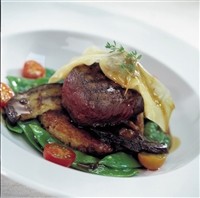Sought after by some of the world’s top-rated chefs, our Elk medallions offer incomparable savory flavor and a tender, fine-grained texture that makes it one of our most popular portions.
| Weight | 5 lbs |
|---|---|
| Dimensions | 18 × 14 × 12 in |
| Elk Medallions | 13-6oz Medallions, 26-6oz Medallions |





